Some events happen quietly, slipping through the cracks of public consciousness. But others arrive like an earthquake, shaking the very foundations of the status quo. And when these events threaten the balance of power, the political class does what it does best; distraction, diversion, and deception.
Last week, the Maa community gathered in Nairobi to launch Decolonizing Maa: A Path to African Indigenous Futures by Prof. Meitamei Ololdapash. It was not just a book launch; it was a declaration of political and cultural defiance, a call for unity, self-determination, and the dismantling of narratives that have kept the Maa people in political and economic bondage.
But in the shadows, nervous glances were exchanged. Some politicians, self-styled “Friends of the State,” were conspicuously absent, terrified that attending such a gathering might be interpreted as siding with the wrong people, the people demanding accountability, land justice, and a political voice independent of external manipulation.
And so, as the call for unity grows louder, Ledama ole Kina arrives like a Roman Senator trying to bribe his way into history, presenting his own version of the truth, one shaped not by the needs of the Maa people, but by the interests of those who sent him.
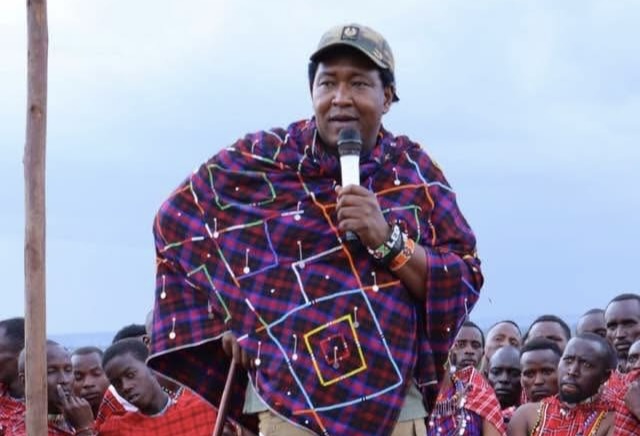
The Business of Betrayal
History teaches us that false prophets always arrive cloaked in the language of salvation.
They speak the words of the people while serving the interests of the empire.
Take Judas Iscariot, who sat at the table with Jesus while plotting to sell him out for thirty pieces of silver (Matthew 26:14-16). Or Brutus, who stood beside Julius Caesar, swearing loyalty before leading the knife into his back. Kenya’s own history is filled with men who wore the cloak of liberation but turned into political merchants, selling the dreams of their people to the highest bidder.
Ledama is a modern-day incarnation of these figures; a broker, not a leader.
Consider the Ward Development Fund in Narok County, funds meant for grassroots development. Initially, Ledama opposed it, calling it illegal. Then, after a few closed-door negotiations, he went silent. The fund continued. The senator had secured his share of the pot.
The Maa people got nothing.
Then there is land injustice, the heartbeat of Maa struggles. Where was Ledama when communities in Olkiombo and Olkeri were demanding justice? Where was his firebrand rhetoric when evictions were being executed under the guise of conservation?
His silence was not accidental; it was transactional.
He witnessed the signing of the broad-based government agreement, yet no one from the Maa community benefited. If whispers in political corridors are to be believed, he allegedly duped a senior advocate from Narok, promising to “lobby” for a PS position for him in exchange for money. The Advocate paid.
The job never materialized. Ledama walked away, richer but unbothered.
A Habit of Convenient Absences
If Ledama truly stands for the Maa people, why does he always seem to vanish when history is being made? It is an old trick, the art of absence, perfected by those who fear accountability. When the drums of cultural pride beat loudly, when the Maa gather to celebrate their heritage, discuss their future, and cement their place in the nation, he is nowhere to be seen.
When the Maa Cultural Week breathes life into Sekenani, or at Archer’s Post in Samburu, bringing together elders, youth, and leaders in a rare moment of unity, he remains a ghost. When the president lands in Narok, launching projects meant to uplift the community, restoring land, and affirming the dignity of the people, he is missing from the frame.
And yet, when the time comes to divide, to distract, to plant the seeds of doubt; there he is, standing tall, shaking hands, calling press conferences, fabricating urgency where none exists. His absence is never an accident, just as his presence is never for the people. It is a calculated game, played by men who serve shadows rather than sunlight.
The Manufactured Crisis of Mau Forest
In 2019, the Mau Forest evictions became a political flashpoint. While the government framed it as an environmental conservation effort, it was poorly executed, causing mass displacement of communities.
What did Ledama do? He turned it into a business venture.
At first, he politicized the evictions, stirring emotions and creating the perception of crisis. But as soon as the dust settled, he pivoted, rebranding himself as a champion of conservation, using the same crisis he helped create to solicit funds.
As Meitamei Olol Dapash notes in Decolonizing Maasai History, land dispossession has always been masked under “progressive policies” designed to appear benevolent while systematically erasing indigenous claims
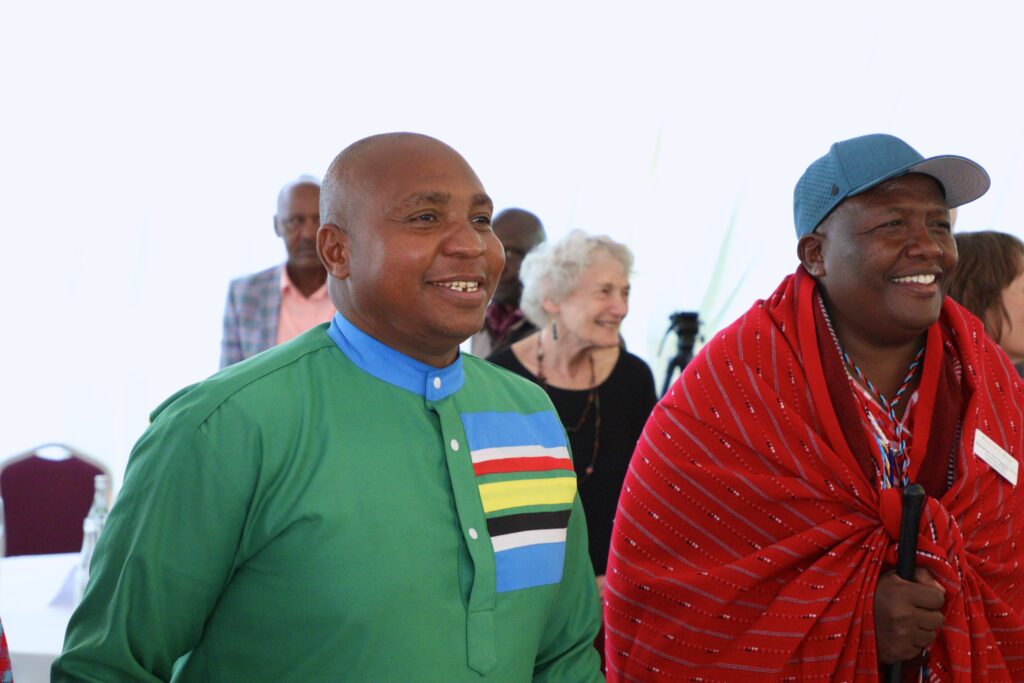
This is a classic Machiavellian move. As Robert Greene writes in The 48 Laws of Power: “If you have no enemies, find a way to create them. Then present yourself as the solution.”
Like the now-defunct Maa Education Discovery Centre, where funds were collected and then disappeared into the mist, Mau became his new cash cow.
He is not a leader; he is a billboard.
Like Coca-Cola or Safaricom, he is marketing a product. And that product is himself, packaged and repackaged depending on the political season.
His words, like the slogans on a campaign poster, are catchy but meaningless, designed to sell, not to serve.
A Political Mole, Not a Political Leader
There is a term in political science; a mole.
A mole is a double agent, someone who infiltrates a movement, gains trust, then feeds secrets to the enemy while weakening the organization from within.
The great Nigerian political scholar Okwudiba Nnoli warned about such figures as individuals who disguise themselves as champions of the people while secretly advancing external interests.
As Dapash argues, post-independence Kenyan leadership perfected the British colonial strategy of “internal disruption”, where local collaborators are used to weaken indigenous resistance while maintaining the illusion of political inclusion
Ledama is a mole.
He has no intention of uniting the Maa people; his role is to fragment them, to ensure that true leadership never emerges, to keep the community perpetually distracted while real power remains elsewhere.
And when he is not busy playing mole, he is playing political tourist.
Like a man who gatecrashes weddings to eat free food and take pictures for social media, he shows up at rallies he was not invited to, grabs the microphone for his obligatory TV moment, then disappears, leaving no substance behind.
Ask the wheat farmers of Narok about him. When the government slashed import duty from 35% to 10%, putting their livelihoods at risk, they blocked the Narok-Bomet highway in protest. Ledama, ever the opportunist, showed up, pretending to be their champion.
They saw through him and chased him away.
Maa Knows Its Betrayers
The Maa people are not naïve. They are a heroic people, a people of warriors, not wheeler-dealers.
In Decolonizing Maasai History, Dapash highlights how past Maasai leaders like Justus Ole Tipis and William Ole Ntimama fought for land rights, despite state intimidation. Their legacy stands in stark contrast to today’s political brokers who sell out the community for personal gain
In 1971, when Idi Amin overthrew Milton Obote in Uganda, he initially presented himself as a liberator. Within months, it became clear that he was a butcher, not a savior.
Ledama is no different. He arrives in the language of unity, but his goal is division.
If history teaches us anything, it is that nations are not built by men who broker power in dark corners.
In the Bible, King Solomon was offered anything he wanted from God; riches, power, victory over his enemies. He chose wisdom instead (1 Kings 3:9), knowing that a kingdom built on greed is a kingdom doomed to fall.
Ledama is no Solomon.
He does not represent the Maa cause. He does not carry the weight of its history, its struggles, or its aspirations.
He is not a leader, but a dealer.
As the Bible warns in Proverbs 26:23-25: “Smooth words may hide a wicked heart, just as a pretty glaze covers a clay pot. People may cover their hatred with pleasant words, but they’re deceiving you. They pretend to be kind, but don’t believe them, their hearts are full of evil.”
So when Ledama speaks of unity, ask yourself: Whose interests is he really serving?
Not the Maa people. Not today. Not ever.
The Writer is a Senior Lecturer and a legal researcher.

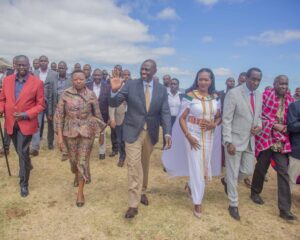
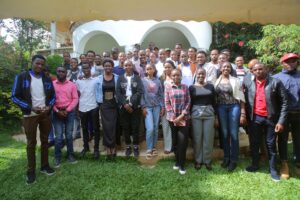
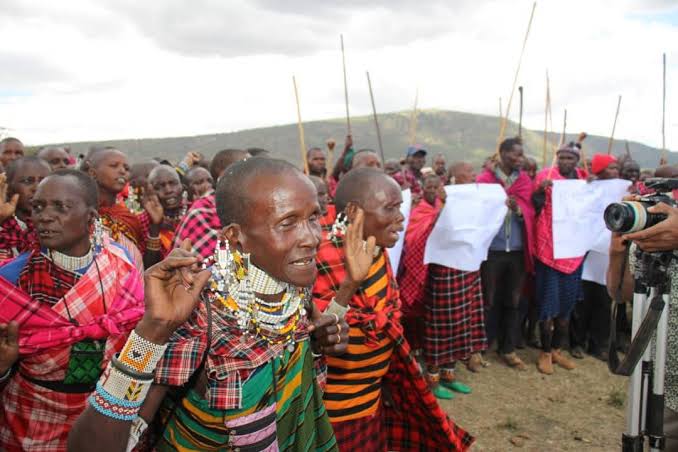
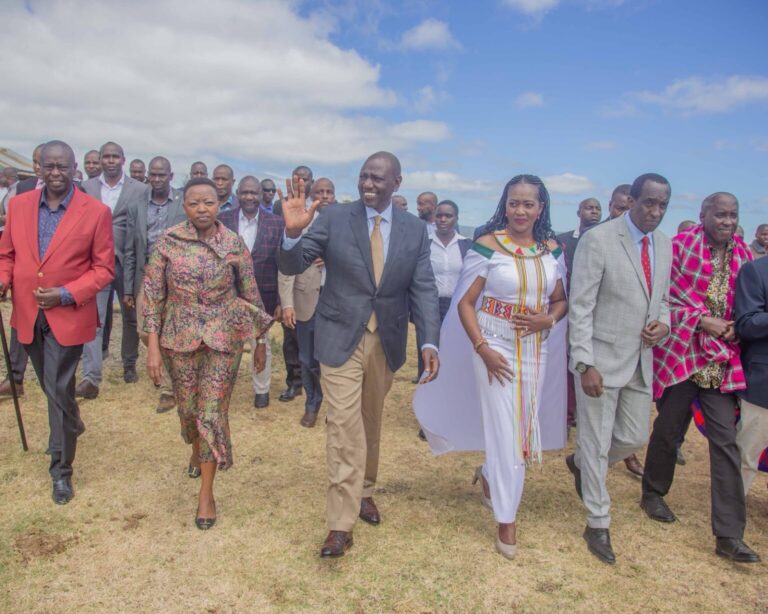

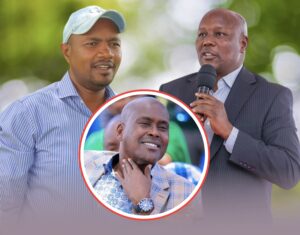
Great one
Our people, renowned for their vibrant culture and deep connection to the land, have long stood as a symbol of resilience in East Africa. Spanning Kenya and Tanzania, their pastoralist traditions, communal lifestyle, and spiritual beliefs remain integral to their identity. However, our people face relentless challenges from political manipulation, resource exploitation, and cultural misrepresentation. Governments and corporations, often in the name of development or conservation, have displaced Maasai communities and denied them rightful access to ancestral lands. Under the pretext of progress, policies are frequently enacted without meaningful consultation, perpetuating the marginalization of indigenous voices.
Furthermore, the erosion of political integrity has exacerbated these issues. Corruption, misinformation, and a lack of accountability allow leaders to act in self-interest, disregarding the cultural heritage and welfare of the Maasai. Inaccurate narratives about indigenous practices often fuel discriminatory policies, further stripping the Maasai of their autonomy. Despite international declarations protecting indigenous rights, political systems continue to fail in safeguarding Maasai interests.
Ledama is an understatement!
Our people, renowned for their vibrant culture and deep connection to the land, have long stood as a symbol of resilience in East Africa. Spanning Kenya and Tanzania, their pastoralist traditions, communal lifestyle, and spiritual beliefs remain integral to their identity. However, our people face relentless challenges from political manipulation, resource exploitation, and cultural misrepresentation. Governments and corporations, often in the name of development or conservation, have displaced Maasai communities and denied them rightful access to ancestral lands. Under the pretext of progress, policies are frequently enacted without meaningful consultation, perpetuating the marginalization of indigenous voices.
Furthermore, the erosion of political integrity has exacerbated these issues. Corruption, misinformation, and a lack of accountability allow leaders to act in self-interest, disregarding the cultural heritage and welfare of the Maasai. Inaccurate narratives about indigenous practices often fuel discriminatory policies, further stripping the Maasai of their autonomy. Despite international declarations protecting indigenous rights, political systems continue to fail in safeguarding Maasai interests.
Ledama is an understatement!